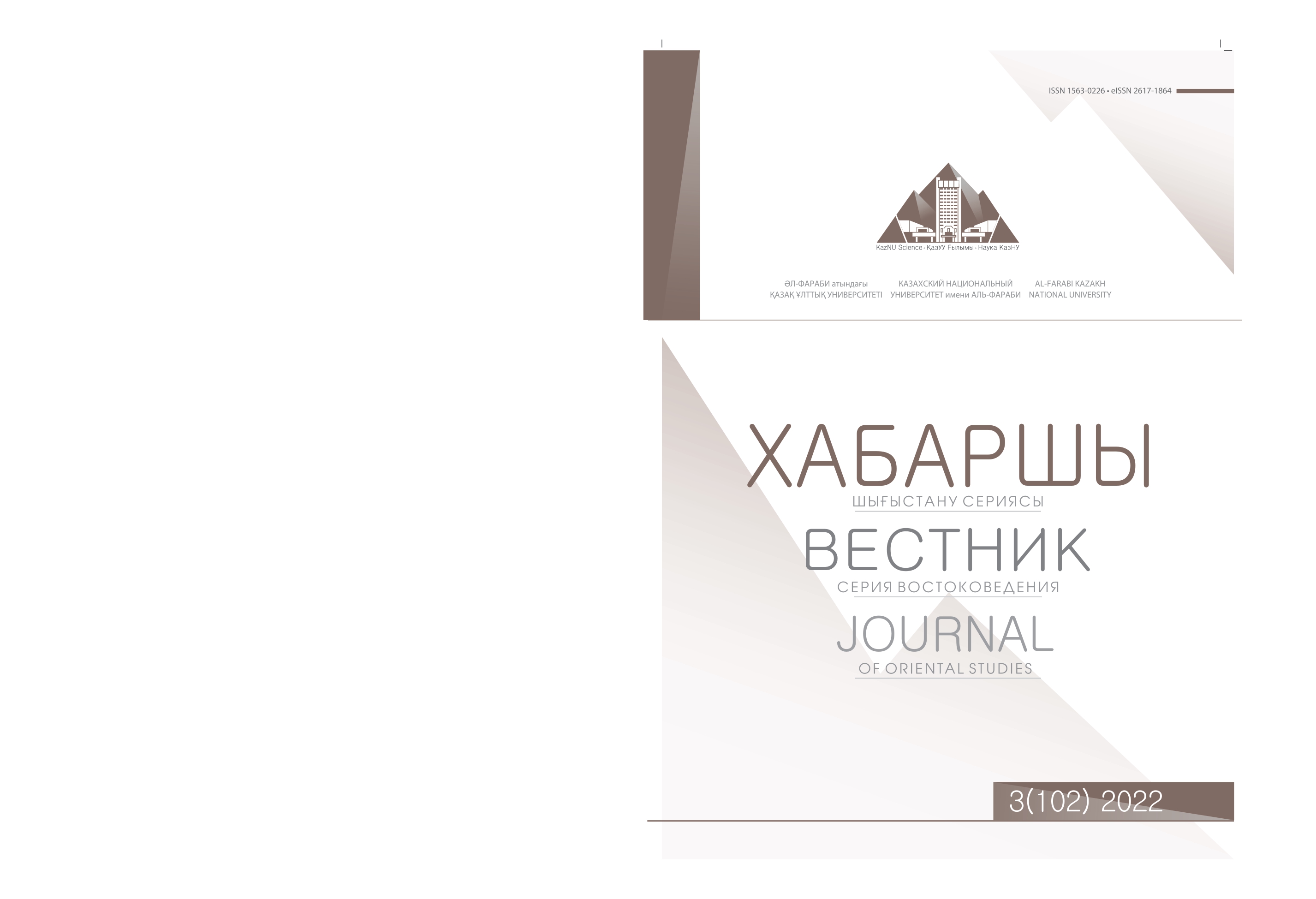Religious motifs in the masnavi of at-Tarazi "Yadgar Zandan ia Aynei Zhahan"
DOI:
https://doi.org/10.26577/JOS.2022.v102.i3.07Abstract
This article contains the first subject and contextual analysis of the authentic text in the Persian language named "Iadgar Zandan ia aineye Jahan" (Prison Diary or Mirror of the World), by a prominent political and public figure, theologian Abu Nasr Mubashshir at-Tarazi (1896 - 1977), recognized fighter against the totalitarian Soviet regime.
This work was written during his stay in an Afghan prison in Kabul from September 6 to November 21, 1947. The composition consists of 4000 bayt couplets in the masnavi genre.
The composition was split into 192 sections with the given thematic title. The main scope of the work expresses the prison environment; the praise of Allah Almighty; the moral commandments of the prophets and saints; issues of religion and politics. The poet turns to the Holy Quran and descants it through the prism of the poetic text.
Valuable scientific information provided in this article can be used in the study of the history of the countries of the East, Persian literature, the Soviet period of the history of Islam in Kazakhstan. The goal of the research was to reveal more profoundly the religious aspects of the work.
The author used detailed and systematic research methods. Considering the Qur'anic verses given in the text and their semantic meaning, the author widely used tafsirs-interpretations of the Qur'an.
Masnavi excerpts are translated into Kazakh directly from the original in Persian with some outlined motives. The article introduces the religious and poetic heritage of the famous scholar theologian at-Tarazi, which made it valuable as a scientific discovery.














